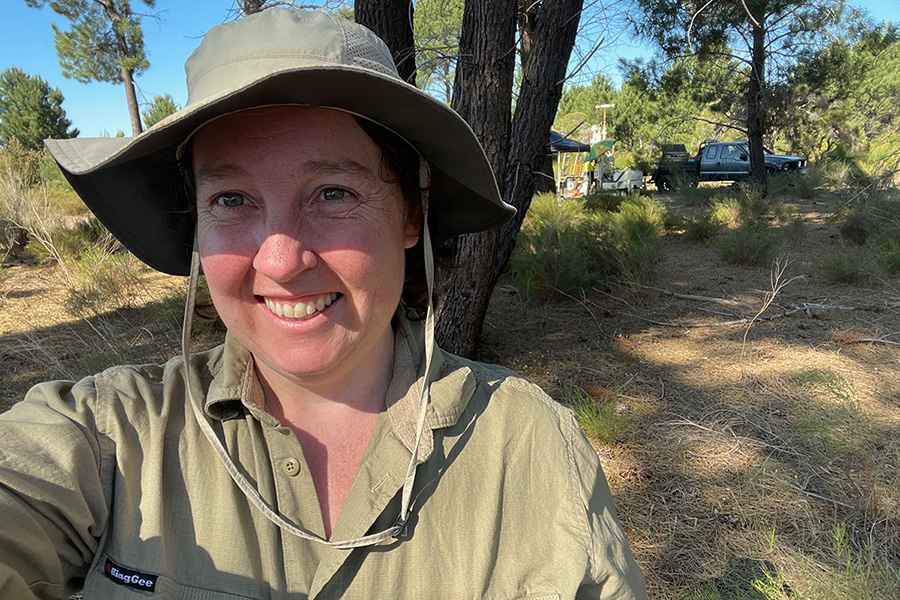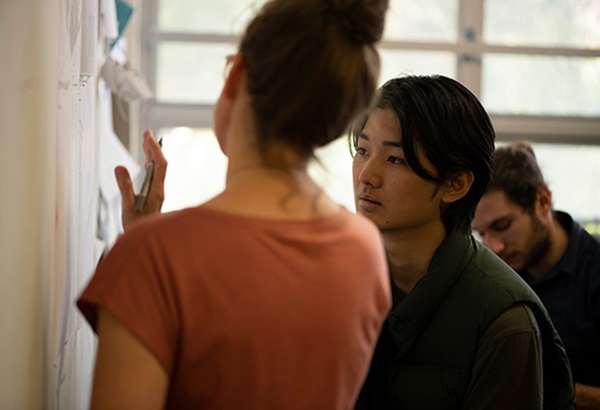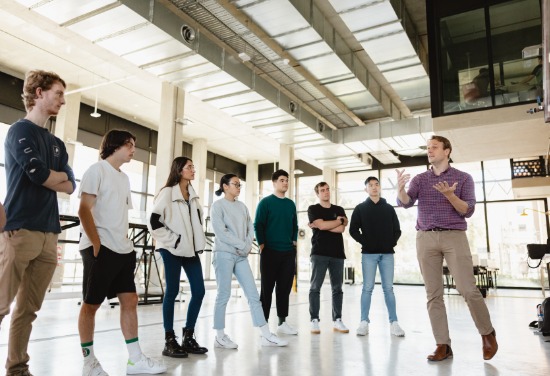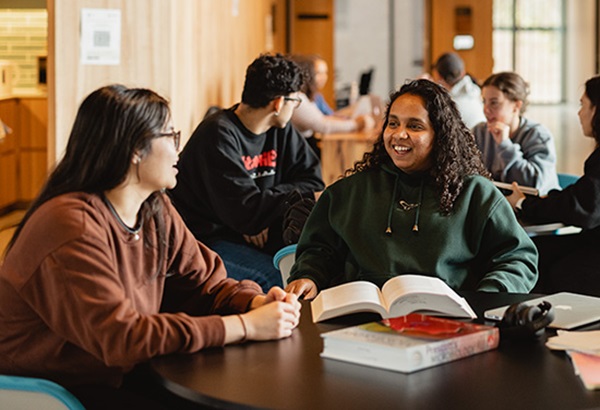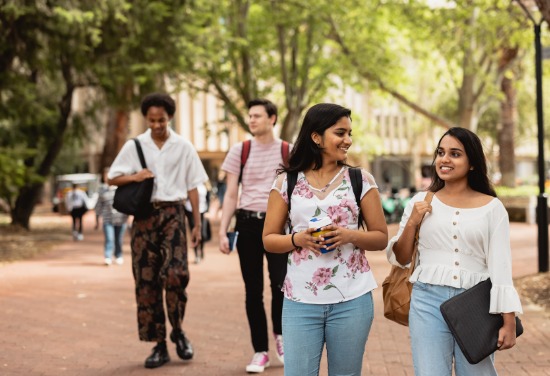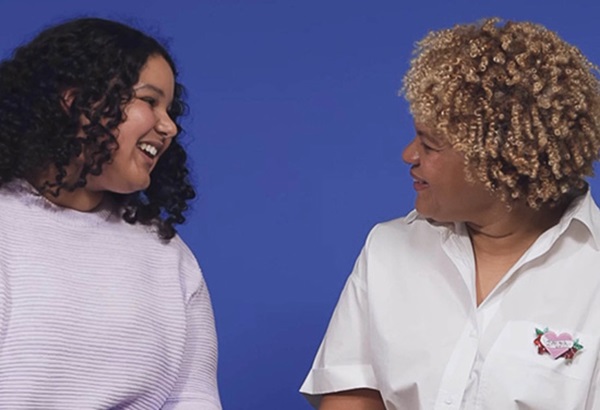As an environmental engineer you can bring about real change developing innovative solutions to environmental challenges. Many of UWA's environmental engineering graduates go on to play important roles in industry and government.
Environmental engineers work in water, waste and energy management, as consultants, in Government, and to help the construction, infrastructure, transport and mining sectors achieve the best possible environmental outcomes.
Get to know one of our academics and hear why environmental engineering is a great study option...
We spoke with Associate Professor Sally Thompson about her journey as an environmental engineer and what sparked her interest in this area of engineering. From exploring the water cycle in Australia to improving soil and water conservation in Ethiopia and assessing fire management strategies in California's Sierra Nevada, Sally tells us about how her research work has taken her around the globe and led to exciting challenges.
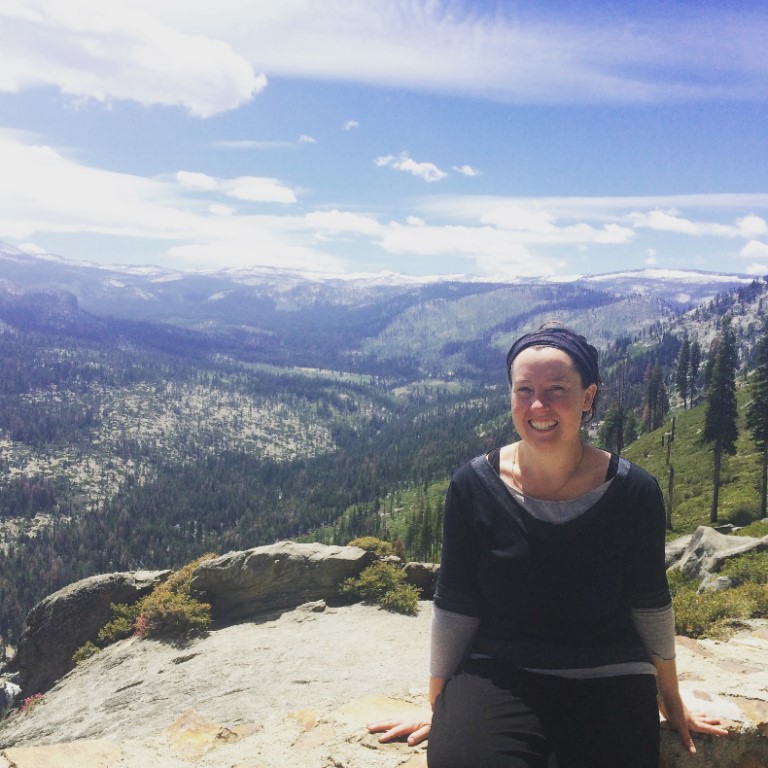
Sally is an environmental engineer who specialises in hydrology. Her work focuses on connections between the water cycle, people and ecosystems – and what those connections mean for keeping our drinking water safe and our forests growing, especially as climate changes.
She told us about her reasons for choosing to specialise in environmental engineering and what inspires her teaching and research.
I was motivated to come to the field of engineering because I saw the opportunity to make practical differences in our world. Engineering is all about problem solving, and I wanted to solve problems in the environment.
“I was particularly worried about our water here in Western Australia – we don’t have that much of it, a lot of it is turning salty in agricultural areas, and this intersects with climate change to cause scarcity of water for people, farming and our incredibly biodiverse natural ecosystems. We need to take proactive and creative steps to solve these problems."
“Some of the solutions we can consider are radical – revolutionising the way we do agriculture; thinning forests to reduce the pressure of drought on trees, or reducing the amount of water we let people take out of groundwater overall. We need robust observations and state-of-the-art predictions to support us in trialling and implementing these solutions.”
Be a problem solver
Creative problem solving is strongly encouraged in the Design Spine – a series of four design classes, one in each year of UWA's Environmental Engineering course, which get students thinking and innovating from their first year.
“The design spine starts with projects tackling the Grand Challenges of Environmental Engineering – climate change adaptation, decarbonisation and automation – and on the way instructs students in how to work, think, and communicate as a professional engineer. Assessment is based on building a design portfolio, full of cool stuff students have done that they can share with future employers."
By the end of the design spine, students are working with external clients and taking full responsibility for all elements of a year-long project. Our students produce amazing stuff – this year they built a new website to give the public access to and help understanding water data for Perth.
Sally’s advice to students, and in particular female students, considering studying engineering is to go for it.
Don’t be intimidated by the stereotypes: engineering is not just about concrete, bridges, or working in isolation. I have found engineering to be a tremendously social and a very human-orientated profession where we make a real difference in the lives of people and in the world around us.
Sally is inspired by her research students – currently she oversees projects based in the US, Brazil, India, Ethiopia and Australia – using a broad suite of tools, ranging from mathematical modelling, to remote sensing, to field observations studying plants, water and ecosystems.
“Research in this field can be adventurous - my research students have done everything you can imagine in the field of water."
“Some students have been working with farmers in the highlands of Ethiopia to measure soil and water properties to try to conserve soil and agricultural function in this impoverished area."
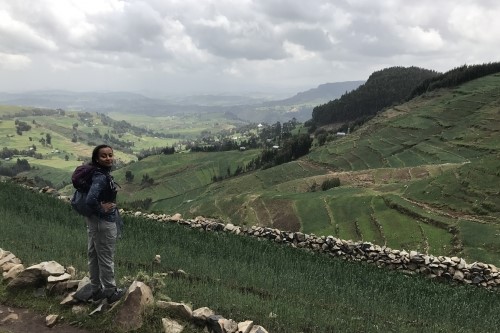
“Others have been camping in the snow in the Sierra Nevada mountains in California, working out how to bear-proof their instrumentation so we can measure snow and water supply in a rapidly changing part of the world.”
Environmental Engineering pathway at UWA
Environmental Engineering offers many different career opportunities providing sustainable solutions to help reduce the effects of climate change and to improve recycling, water resources, waste management, bushfire management and energy systems.
Environmental engineering is a diverse and flexible specialisation and you’ll gain detailed knowledge on environmental management and design, ecological engineering and design, environmental modelling, contaminant fate and transport, hydrology, environmental fluid mechanics and more.
With UWA’s Bachelor of Engineering (Honours) program you can chose to specialise in environmental engineering and become an industry-ready engineer in just four years. You’ll be guided by world leading academics specialising in oceanography, water engineering, waste management, sustainable engineering and site decontamination.
Still not sure which engineering career path is right for you? Read our Which engineering specialisation should I study? story for details on all of UWA’s engineering specialisations and the career paths they can lead to.


